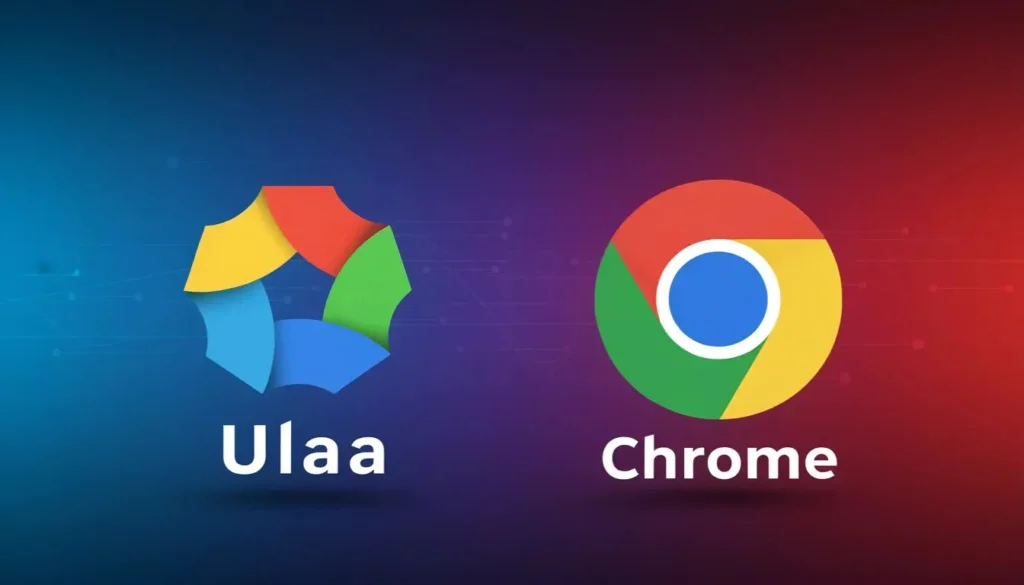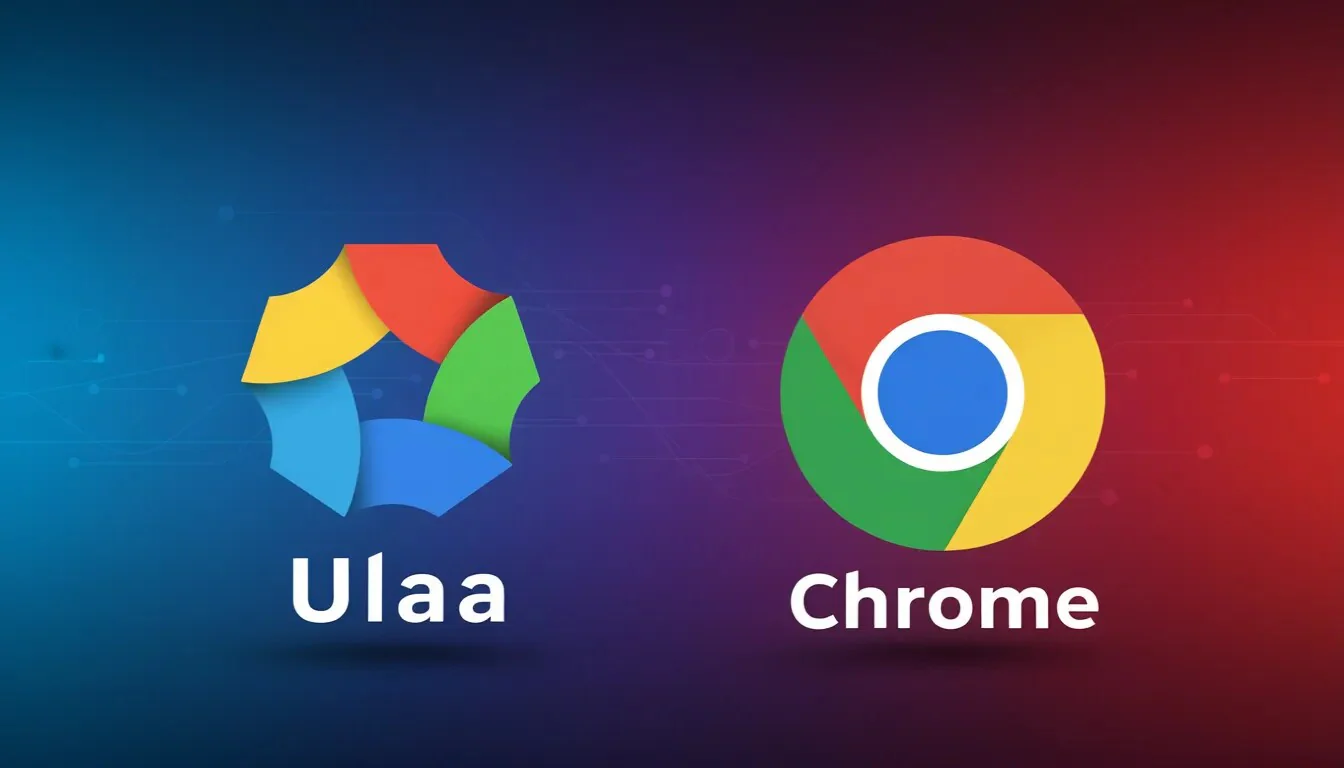
In a world dominated by Google Chrome, a new player has stepped in — Zoho Ulaa. Built by the Indian tech giant Zoho Corporation, Ulaa is making headlines as a privacy-first web browser designed for users who are tired of being tracked and profiled online.
But how does Ulaa really compare to Chrome, the world’s most used browser? And is it capable of replacing Chrome for professionals, agencies, and everyday users? Let’s dive deep into this comparison.
🔍 1. Introduction to Zoho Ulaa
Zoho’s Ulaa, launched in 2024, is designed with one clear vision — to give users control, privacy, and independence in a digital world dominated by data-hungry platforms.
Unlike Chrome, which is built around Google’s ad ecosystem, Ulaa focuses on zero-tracking browsing. It doesn’t collect your data, sync it to ad servers, or profile your activity. The name “Ulaa,” meaning “journey” in Tamil, reflects Zoho’s mission to empower users to browse safely and freely.
⚙️ 2. The Core Difference: Privacy vs Personalization
| Feature | Zoho Ulaa | Google Chrome |
|---|---|---|
| Privacy | 100% private; blocks trackers, ads, and data collection by default | Collects user data for ads and personalization |
| User Tracking | No tracking IDs or telemetry | Uses Google account data for ads and analytics |
| Sync Option | Encrypted local sync (Zoho account optional) | Full sync with Google account and cloud storage |
| Ad Personalization | None – ad-free model | Heavily ad-personalized |
👉 Verdict:
Ulaa wins on privacy. Chrome’s strength lies in its ecosystem integration — but that comes at the cost of data collection and user profiling.
⚡ 3. Performance and Speed Comparison
One might assume that a privacy-heavy browser like Ulaa would be slower — but the opposite is true. Zoho Ulaa is lightweight, optimized to block resource-heavy scripts, trackers, and ads, which often cause Chrome to slow down.
Benchmarks from early testers show that Ulaa loads popular websites 15–25% faster on average when ad tracking is disabled.
However, Chrome still has the advantage in:
- Compatibility with Chrome extensions (though Ulaa supports many)
- Deep integration with Google services like Docs, Drive, and Meet
👉 Verdict:
If you rely heavily on Google’s cloud tools, Chrome feels smoother. But for speed and clutter-free performance, Ulaa shines.
🔒 4. Privacy and Security Tools
Ulaa includes built-in privacy tools that go beyond Chrome’s “Incognito Mode.”
🔐 Ulaa’s Security Highlights:
- Ad & Tracker Blocker (default)
- Isolation Modes – Personal, Work, Developer, Kids, and Open modes to manage browsing contexts separately
- Password Manager with encryption
- No hidden telemetry — Zoho commits to not selling or sharing data
Chrome, while secure from malware and phishing threats, lacks such transparency. It continues to collect user data for its ad systems, even when users opt for privacy settings.
👉 Verdict:
In 2025, privacy isn’t a luxury — it’s a right. Ulaa is designed around that principle, while Chrome still prioritizes data monetization.
🌐 5. User Experience and Interface
Zoho Ulaa offers a clean, modern UI inspired by minimalism. It’s designed to be distraction-free — without constant pop-ups, suggestions, or Google sign-ins.
Chrome, however, offers unmatched convenience. Its auto-login, smart suggestions, and integrated ecosystem (Gmail, Drive, YouTube) make it ideal for users deep in Google’s environment.
👉 Verdict:
Ulaa is great for focused, secure browsing. Chrome remains better for users who want everything linked to one Google account.
🤖 6. AI and Productivity Tools
Zoho is integrating Ulaa with its AI assistant (Zia) and other productivity platforms like:
- Zoho Writer, Zoho CRM, Zoho Mail
- Zoho WorkDrive, a cloud alternative to Google Drive
This makes Ulaa a strong contender for businesses already using Zoho apps. Imagine having your CRM, analytics, and email ecosystem all integrated — privately and seamlessly.
Chrome, powered by Google Gemini (AI), still leads in AI-based suggestions, auto-completion, and translation.
👉 Verdict:
If you want AI convenience — Chrome wins.
If you want AI with data privacy and business control, Ulaa is the smarter choice.
🧩 7. Extensions and Compatibility
Ulaa supports Chrome extensions through its Chromium foundation. However, it removes all Google-based tracking elements.
This means you can still use extensions like Grammarly, Canva, or Meta Business Suite — but without the privacy compromises of Chrome.
👉 Verdict:
Extension flexibility = Draw.
Data security = Ulaa wins.
💼 8. What This Means for Businesses and Marketers
For agencies like Picasso Multimedia, the rise of Ulaa marks a shift in the digital landscape.
- Privacy-first marketing will gain importance.
- Ad tracking and cookie-based targeting will continue to lose effectiveness.
- Businesses will need to invest more in content marketing, SEO, and first-party data collection instead of relying on browser tracking.
Ulaa’s model empowers users and encourages ethical marketing — an opportunity for agencies to align with privacy-conscious audiences.
🔮 9. The Future: Can Ulaa Replace Chrome?
While Chrome isn’t disappearing anytime soon, Zoho Ulaa represents a powerful new era — one that prioritizes control, transparency, and trust.
Just as Brave and DuckDuckGo challenged Google Search, Ulaa challenges Chrome’s monopoly — especially in India, where data privacy awareness is growing rapidly.
Zoho’s local infrastructure, ad-free approach, and government alignment on data sovereignty make it a realistic alternative for individuals, enterprises, and government users.
🏁 Conclusion
Zoho Ulaa is not just another browser — it’s a statement. It stands for privacy, independence, and the future of responsible browsing.
Google Chrome remains a productivity powerhouse — but with growing concerns about surveillance capitalism, more users are likely to explore secure, ad-free options like Ulaa.
In 2025 and beyond, users and marketers alike must rethink their relationship with data, ads, and privacy — and Zoho Ulaa is leading that conversation.


